-
Your Government
-
- Departments Administration Building Finance Police Public Works Village Board Agendas and Minutes
- Committees & Commissions Community Affairs Committee Development & Government Affairs Economic Development Committee Finance Committee Ordinance Committee Planning & Zoning Commission Police Commission Police Pension Committee Public Works Committee
-
-
Our Community
-
- About Johnsburg President's Message Vision Statement Mission Statement Community Profile Resident Information Newsletters Kids Corner Contact the Village
- Community Directory Seniors Utilities
- Employment Opportunities Parks and Recreation Parks Directory Chapel Hill Golf Course Public Safety Police Fire
-
- Business & Development
-
How Do I?
-
- Job Opportunities Alerts and Notifications Email Subscriptions Events and Meetings Agendas and Minutes Calendar In the News Village News Newsletters Village Blog
- Contact the Village Submit a Request or Concern Staff Directory Documents and Forms Documents and Reports Forms and Applications
- Social Media Facebook Twitter Find Recycle Often. Recycle Right. Municipal Code & Ordinances Voting Information - McHenry Township Voting Information - McHenry County Non-Highway Vehicle Permit Information
-
Waste Water Project
Project Type:
Sewer
Project Status:
Completed
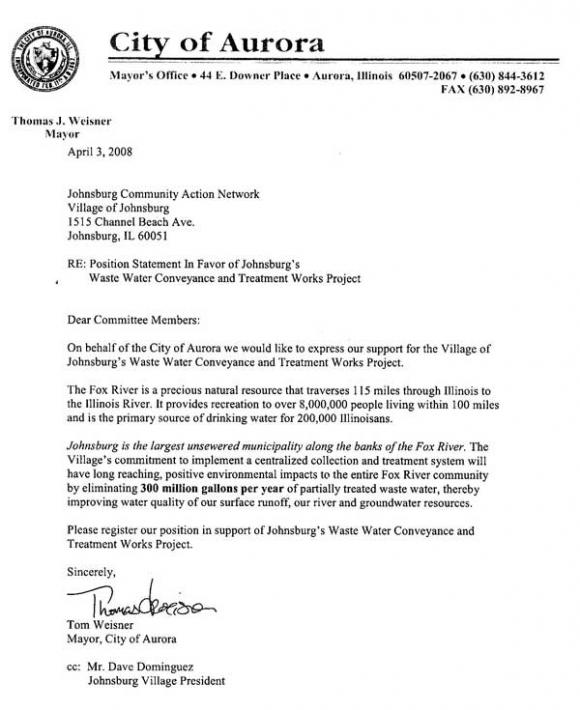
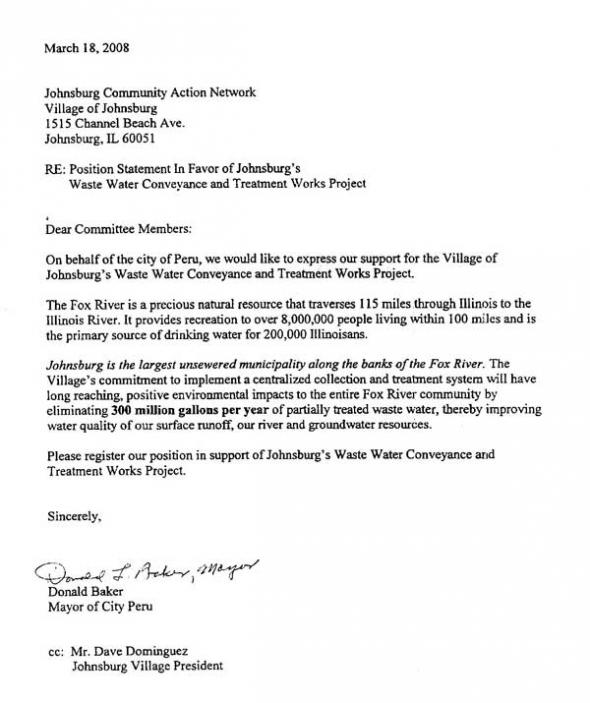
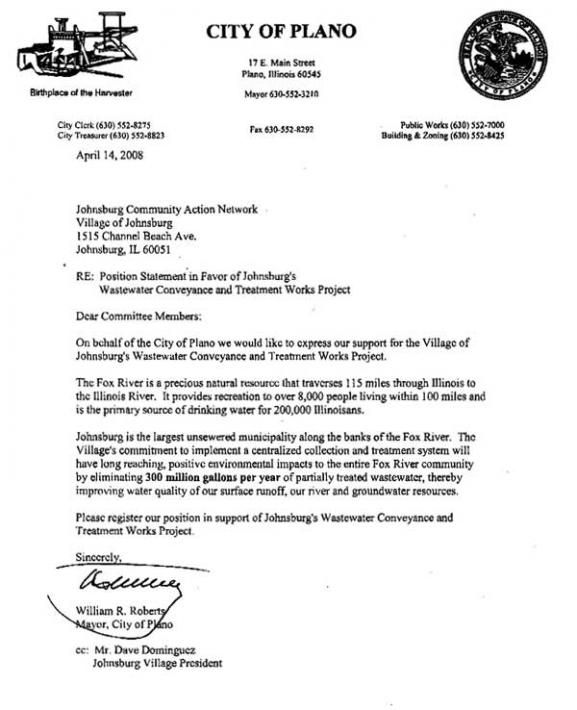
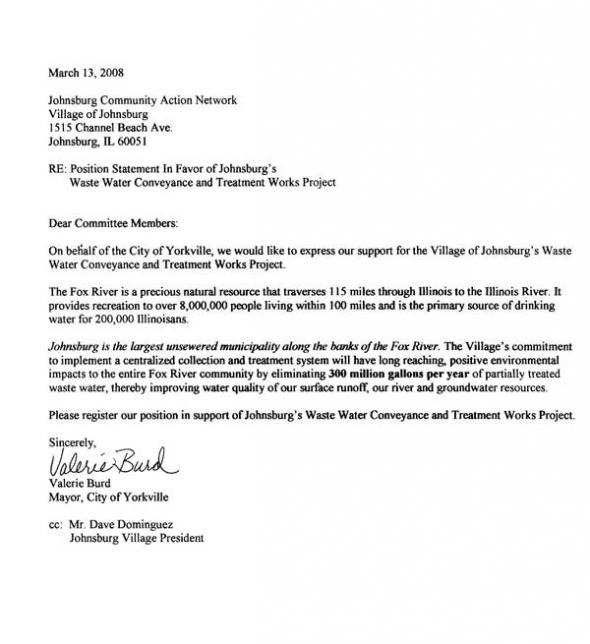
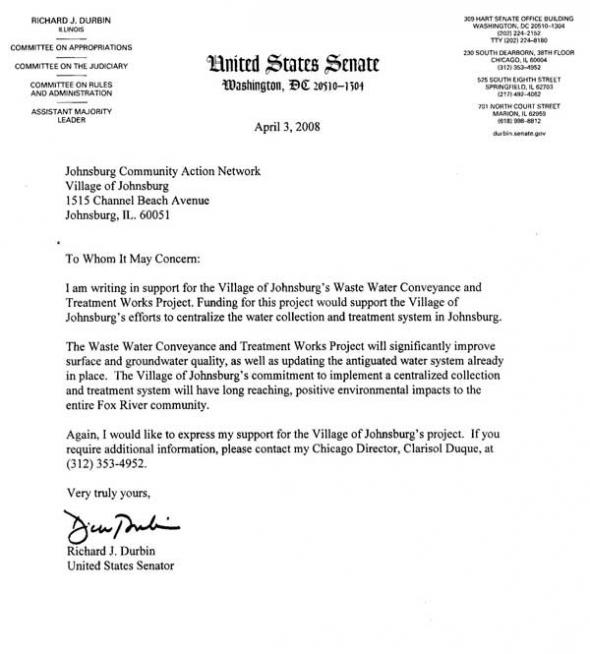
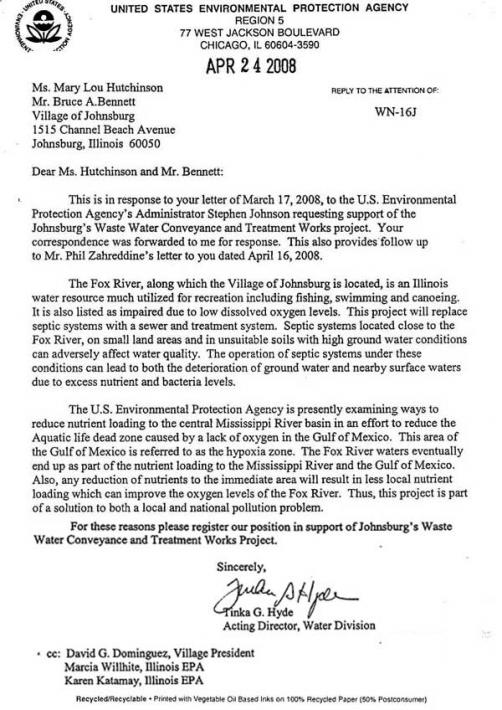
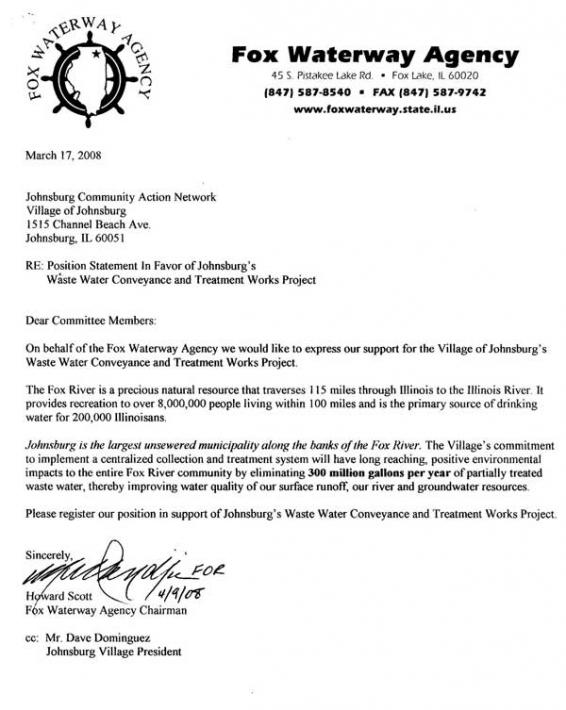
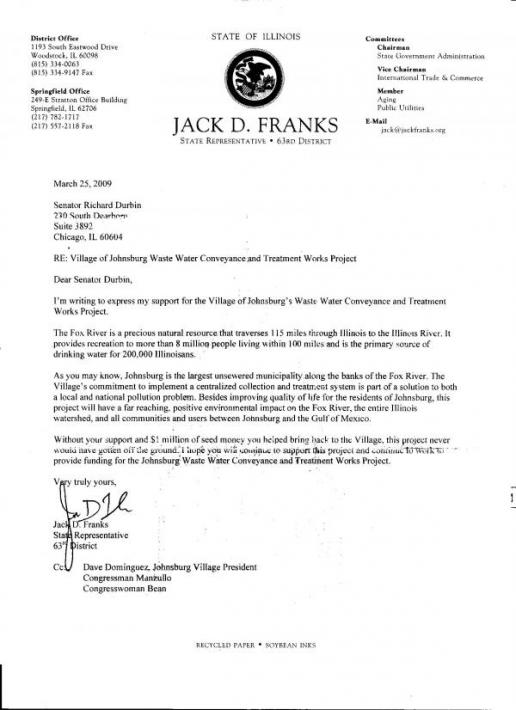
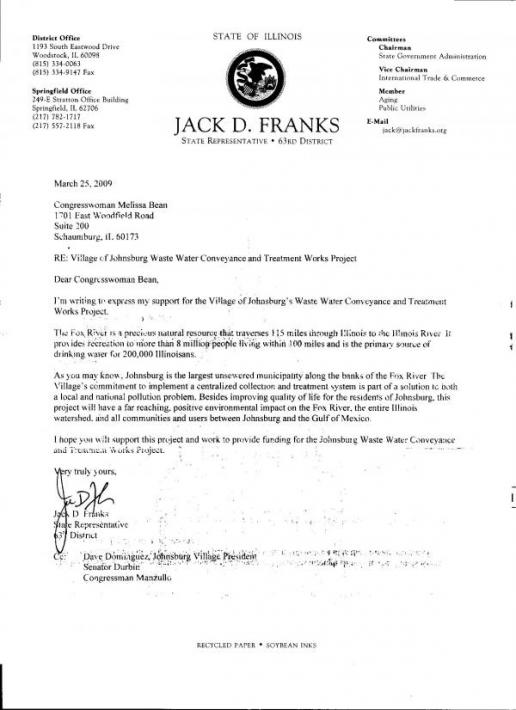
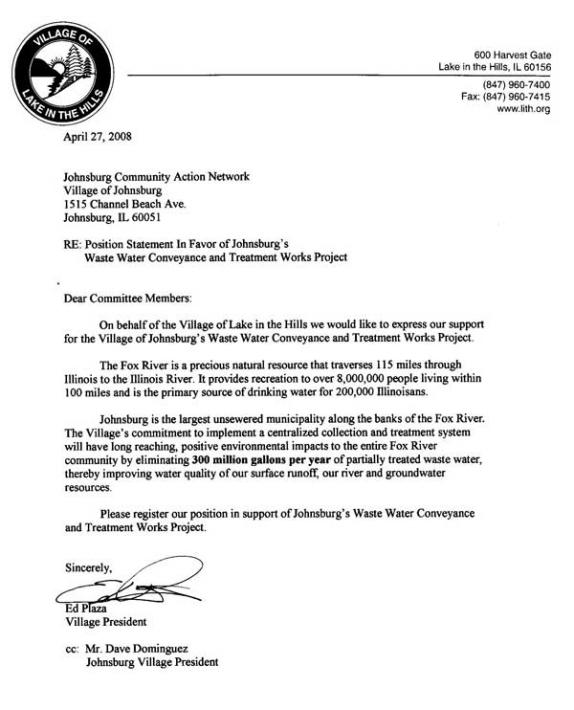
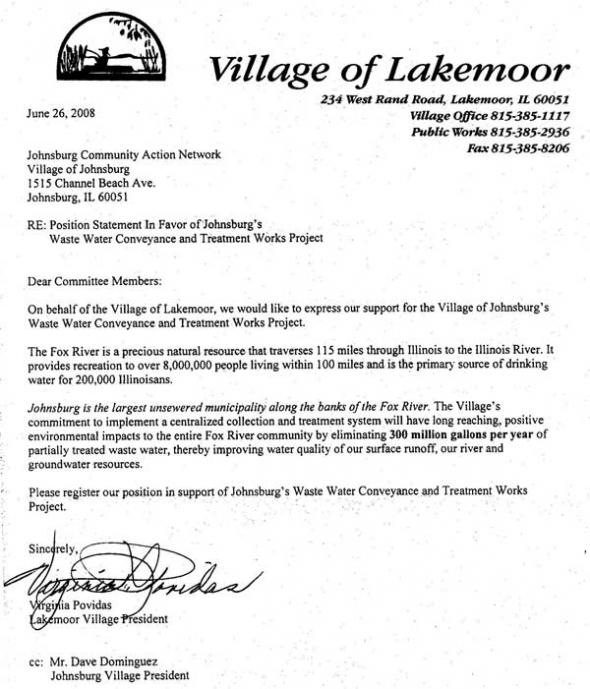
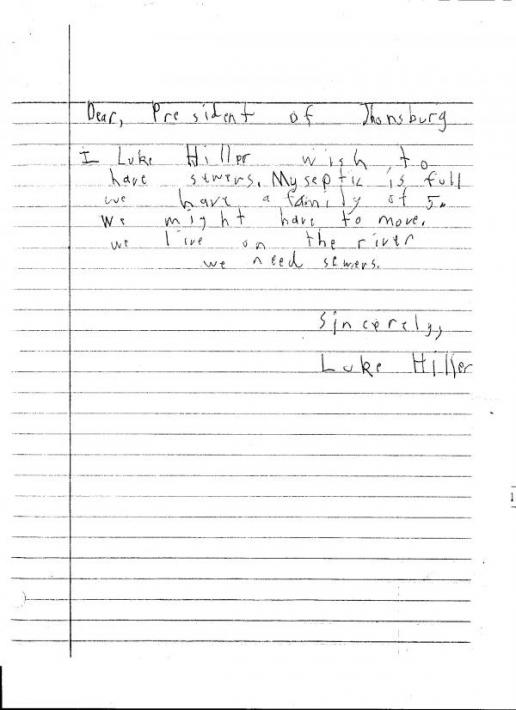
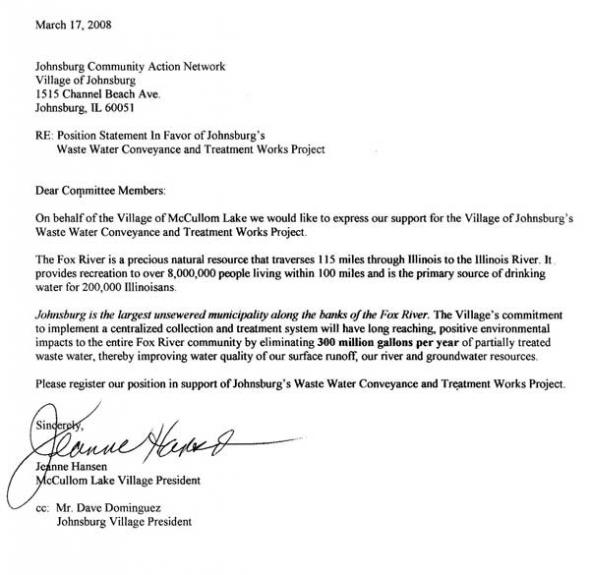
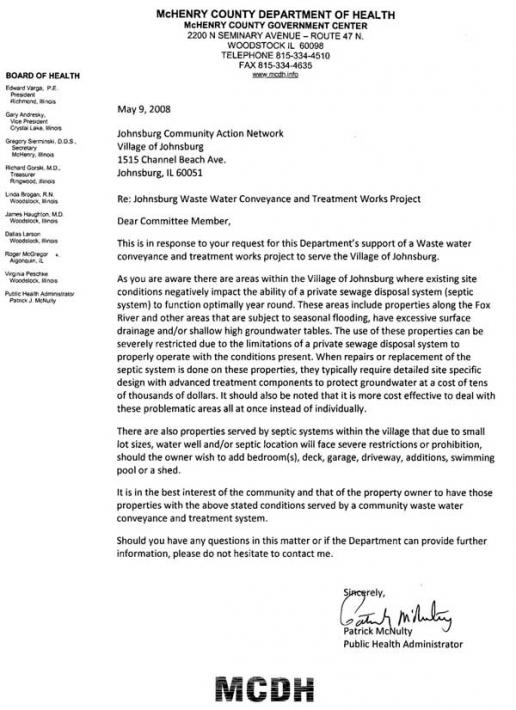
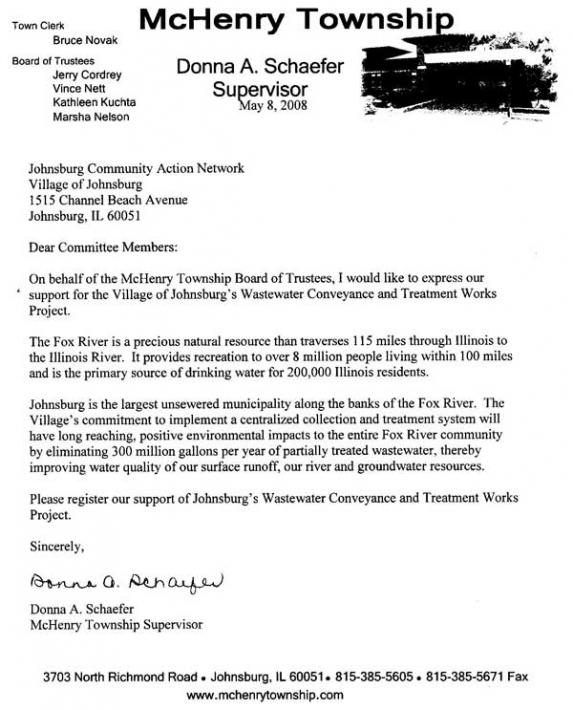
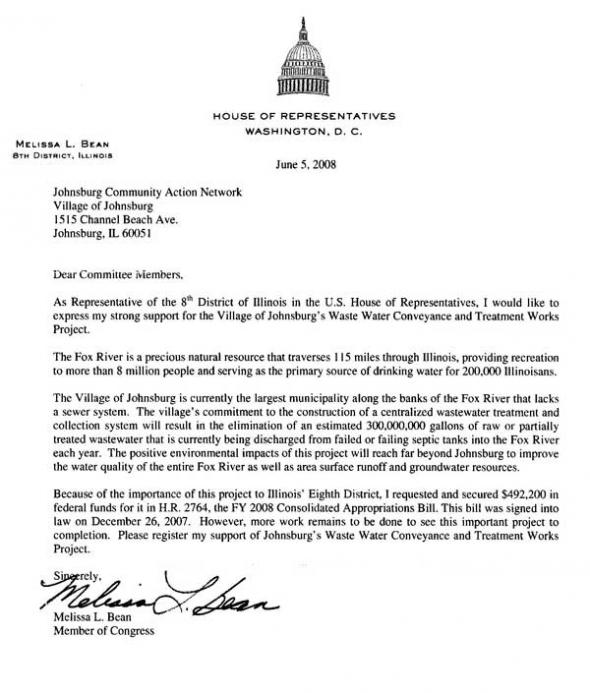
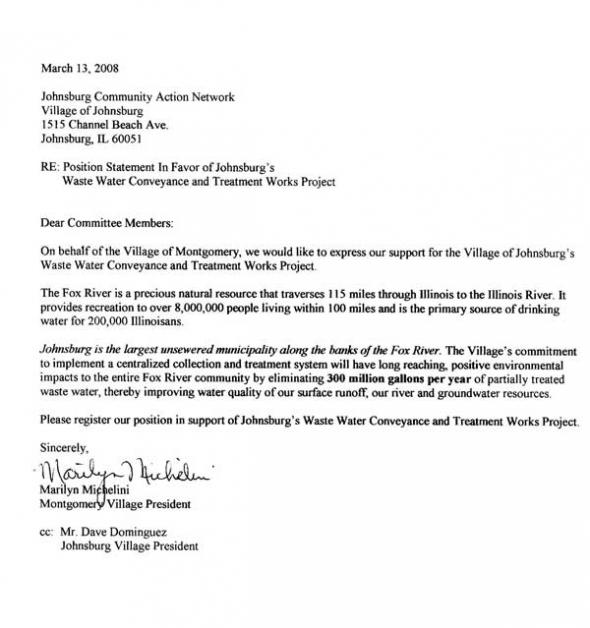
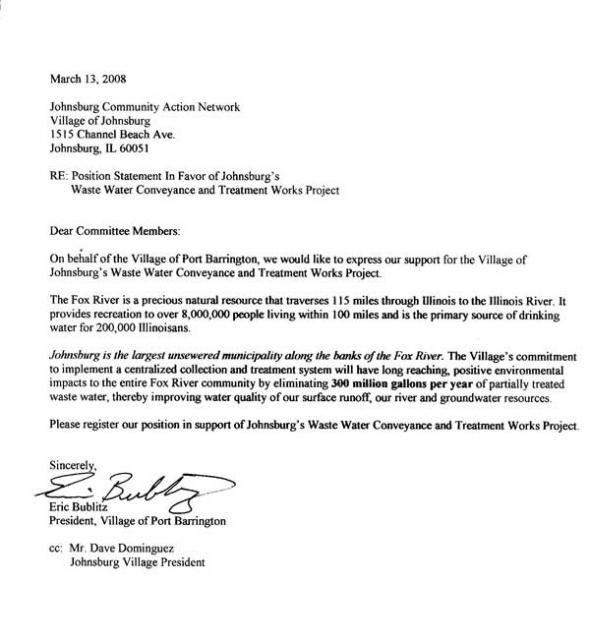
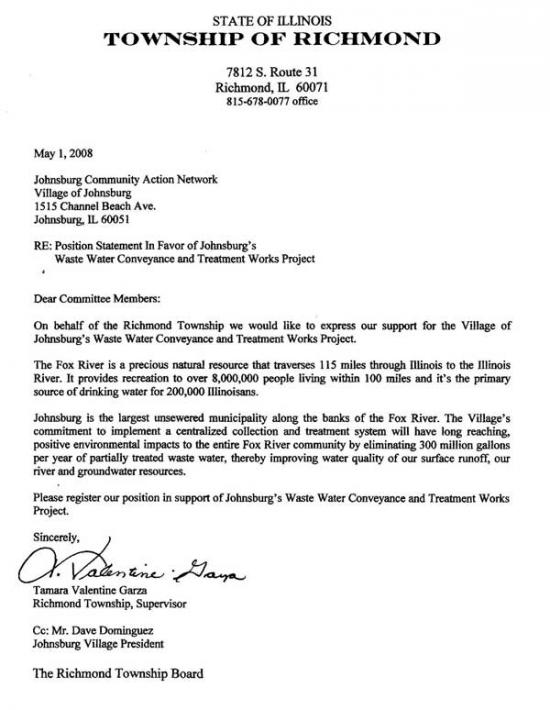
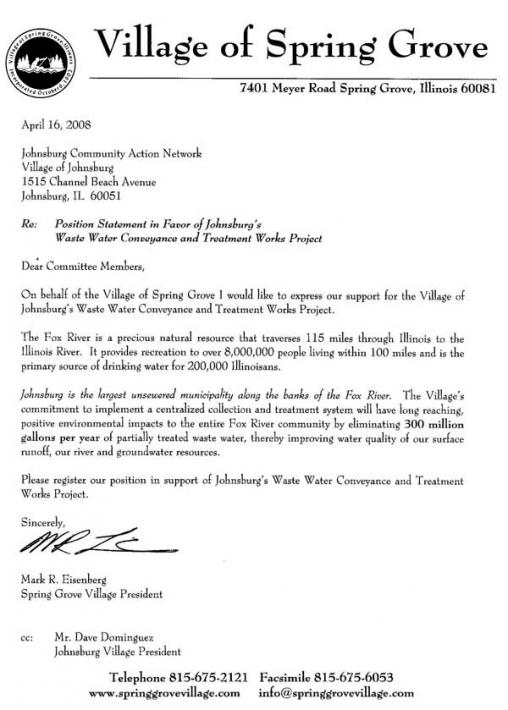
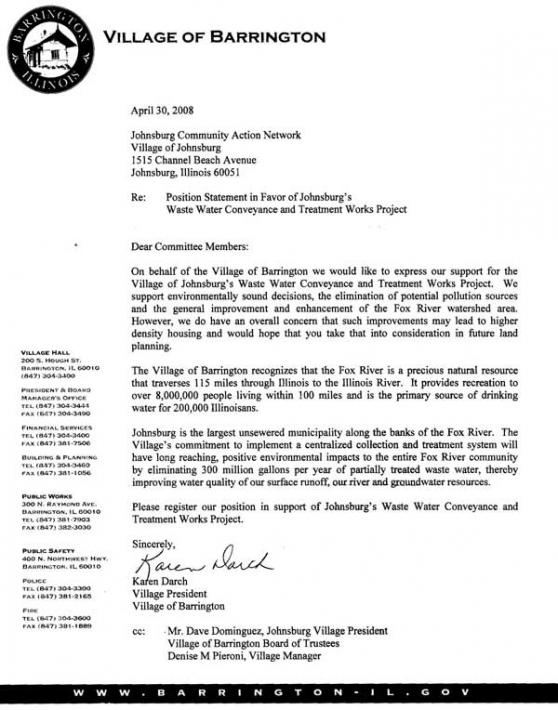
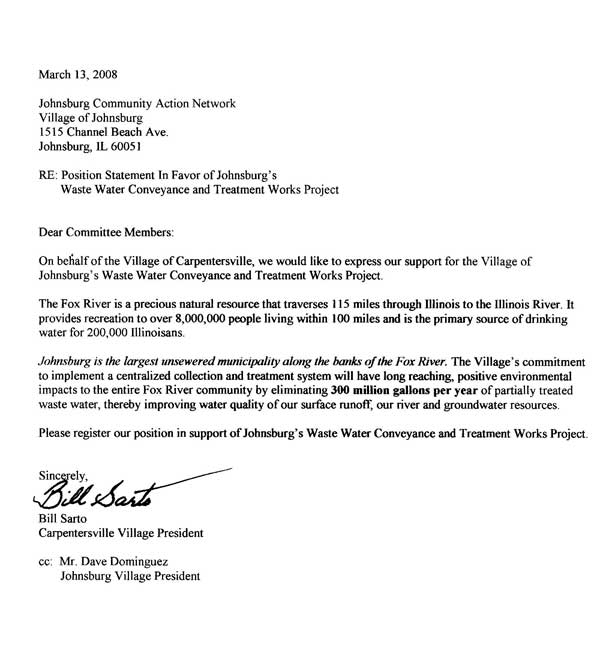
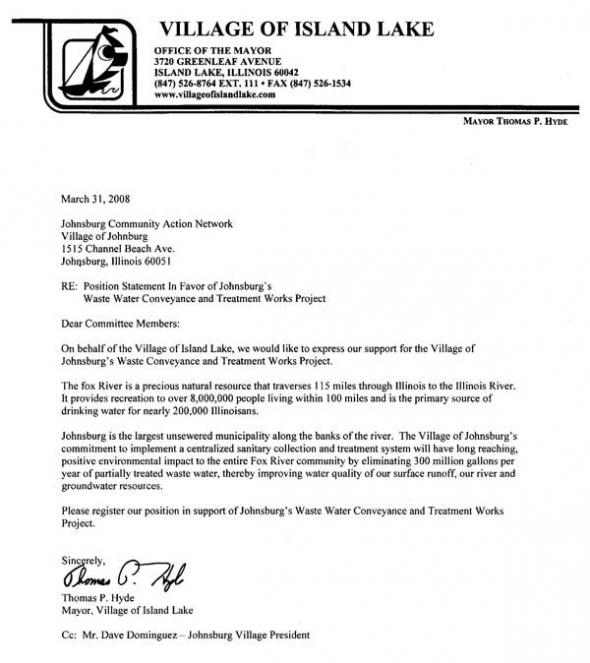
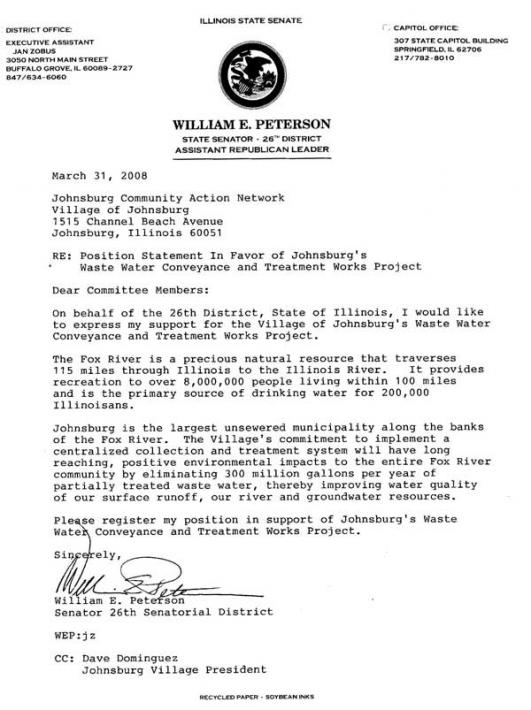
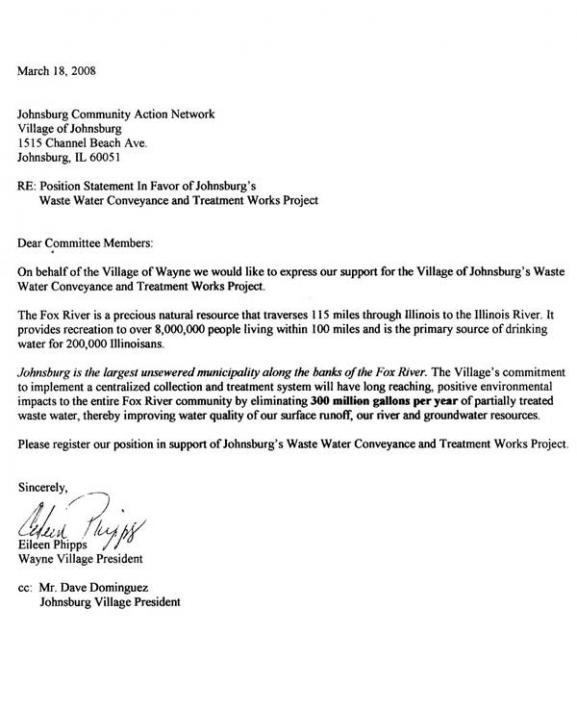
Status Updates
Stage One TMDL Final Report 2010
The Upper Fox/Chain O'Lakes Watershed and Upper Fox River/Flint Creek Watershed final Stage One TMDL reports are now available on the EPA's website at http://www.epa.state.il.us/water/tmdl/report-status.html. These reports include a Responsive Summary which addresses questions and comments submitted during the public comment period which ended in September, 2009. The Illinois EPA views TMDLs as a tool for developing water quality based solutions that are incorporated into an overall watershed management approach. To read a copy of the report click the link above.
TMDL Report August 2009
According to a report issued by the Illinois Environmental Projection Agency, "Over the last 30 years, waters in Illinois have been monitored for chemical, biological and physical conditions. In some cases, the conditions of those rivers and lakes fall short of the need to support basic water quality use goals. These waters are deemed impaired since they cannot meet use expectations set for them under state and federal law. When this happens Total Maximum Daily Load (TMDL) reports are developed for impaired waters to determine the maximum amount of a pollutant a water body can receive and still meet water quality standards and support its designated uses." The report developed for August of 2009 shows the Fox River as being impaired by Fecal Coliform
Stimulus Timeline Article 7/20/09
In light of recent articles in the Northwest Herald regarding the pursuit of a stimulus loan for our wastewater treatment collection system, the Village of Johnsburg issued a press release today to address and clarify the misinformation circulating throughout the community.
Stimulus Funding Update 3/30/09
Today, March 30th, 2009, the Village of Johnsburg released the second in a series of press releases designed to provide updates and inform residents of the status of the Village’s pursuit of stimulus funding. In its first press release, the Village announced that it submitted a request for more than $20 million dollars to be funded through the economic stimulus funding known as the American Recovery and Reinvestment Act (ARRA).
The request was submitted to help fund a wastewater treatment collection system for properties within SSA#23 and the remaining sewer service area. Funds were also requested to provide water system and wastewater treatment plant improvements. Since the original submission, the Village has learned that funding assistance through ARRA for wastewater and water improvements would be provided through the Illinois Environmental Projection Agency’s (IEPA) Water Pollution Control Loan Program commonly known as the State Revolving Loan Fund (SRF). ARRA funding through the SRF may provide 0% interest loans for 50% of a qualified project, not to exceed $10,000,000. Additionally, one quarter of the project may qualify for loan forgiveness. The remaining 50% of a qualified project may then be funded with low interest financing through the State Revolving Loan Fund.
In order for projects to be considered, they must be “shovel ready” and a pre-application must be filed with the IEPA no later than March 31, 2009. The Village of Johnsburg submitted it’s pre-application on March 10, 2009. The next step is to submit a full loan application package for consideration. The information required for the loan application is significant and costly. Several years ago, the Village investigated the use of the State Revolving Loan Fund and found it to be cost prohibitive. Given the new conditions provided under the ARRA, the Village is again analyzing application costs to determine if current terms will make it a more viable source of funding.
In addition to providing engineering studies, project schedules, bid tabulations, and cost estimates, the application also requires qualified repayment source(s) to be identified. Although qualified repayment sources can include the pledge of user fees, sales tax revenues and special service area (SSA) taxes, the ideal repayment method would be through the pledge of SSA taxes. A special service area provides a means of collecting funds from the users of the system to repay the debt on their tax bill. In addition to the pledge of SSA taxes, the Village would also pledge a portion of its sales tax revenues. Pledging sales tax revenues alone would not be considered an acceptable repayment source as the Village does not generate sufficient sales tax to cover the debt service. “The pledging of SSA taxes for repayment of the State Revolving Loan Fund would insure that the Village receives economic stimulus funding through the American Recovery and Reinvestment Act. Unfortunately, the litigation brought about by the Coalition Against SSA #23 jeopardizes the Village’s “shovel ready” status for the project and may prevent us from qualifying for funding,” said Trustee and Finance Chairman Bruce Bennett. If the Coalition prevails, in all likelihood there would be insufficient time to establish an alternative revenue source and the Village would be unable to benefit from economic stimulus funding.
While ARRA funding may help reduce the cost of the wastewater treatment collection system project, it will not provide the degree of funding truly needed for the project. “The Village of Johnsburg, along with the Johnsburg Community Action Network (JCAN), continues to work diligently to draw regional and national attention to the environmental importance of this project in an effort to obtain additional funding to lessen the financial burden to our residents,” said Trustee Marylou Hutchinson.
For more information on American Recovery and Reinvestment Act programs go to www.recovery.gov orwww.recovery.illinois.gov.
Stimulus Funding Request 2/6/09
The Village of Johnsburg announced today that it has submitted a request for more than $20 million dollars to be considered under the Federal economic stimulus package. The request was initially submitted through the Metropolitan Mayors Caucus in November of 2008 and supported, along with other McHenry County projects, by the McHenry County Council of Governments. If granted, funds would go towards the construction of: a wastewater treatment collection system for properties within SSA#23 and the remaining sewer service area; water system improvements; and wastewater treatment plant improvements. Village officials feel that these projects meet the criteria established for economic stimulus funding as they are all “shovel ready” and will provide immediate jobs.
The Village, which identified waste water treatment as a priority for its residents, had initiated an SSA to fund a sewer collection system within certain areas of the Village. Village President David Dominguez said it is the Village Board’s desire to reevaluate the project’s costs, looking closely at financing costs, inflationary increases of labor and materials and the potential of new funding through the Federal economic stimulus package before moving forward with the project. "Since we announced this project two years ago, we have seen dramatic changes in our economy. Today we are all being financially squeezed and we are concerned about our resident’s financial viability”, said President Dominguez. Village officials agree that economic conditions have driven the need to review the cost impact of the existing project as well as the possibility of delaying the project or reducing the project’s scope. If, however, full funding were made available, the village would study the extension of services to other areas identified in its sewer plan.
